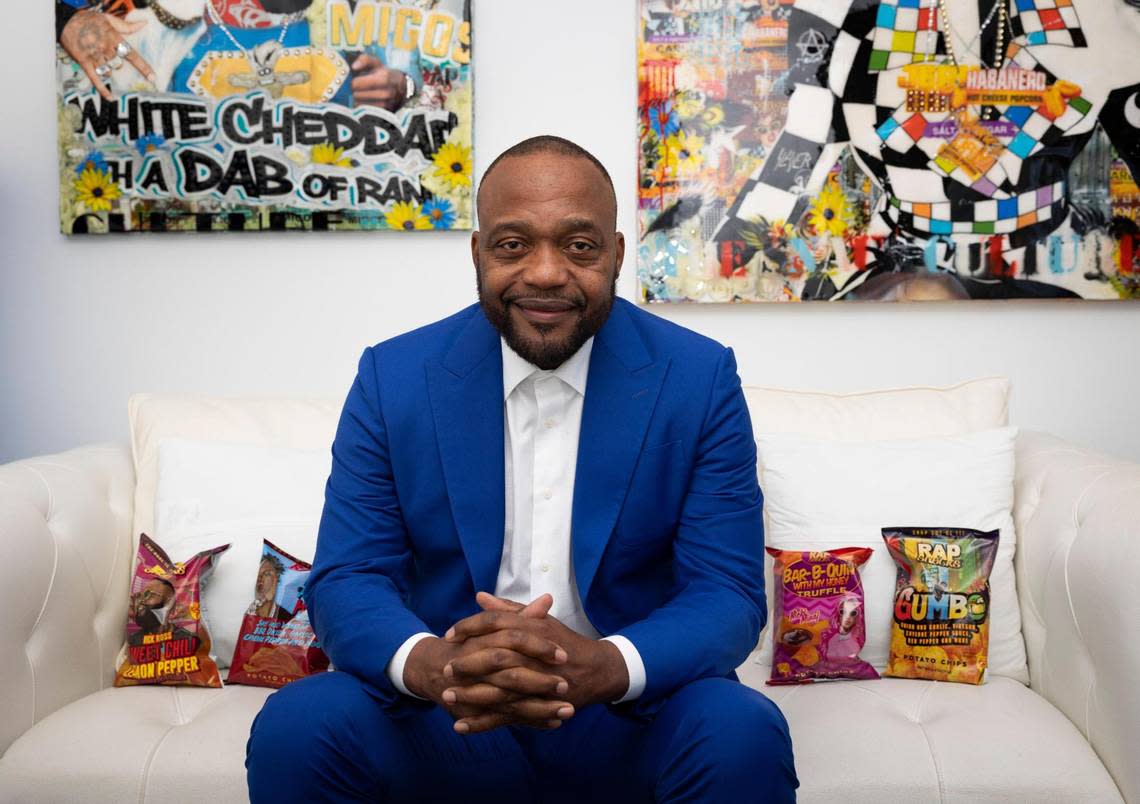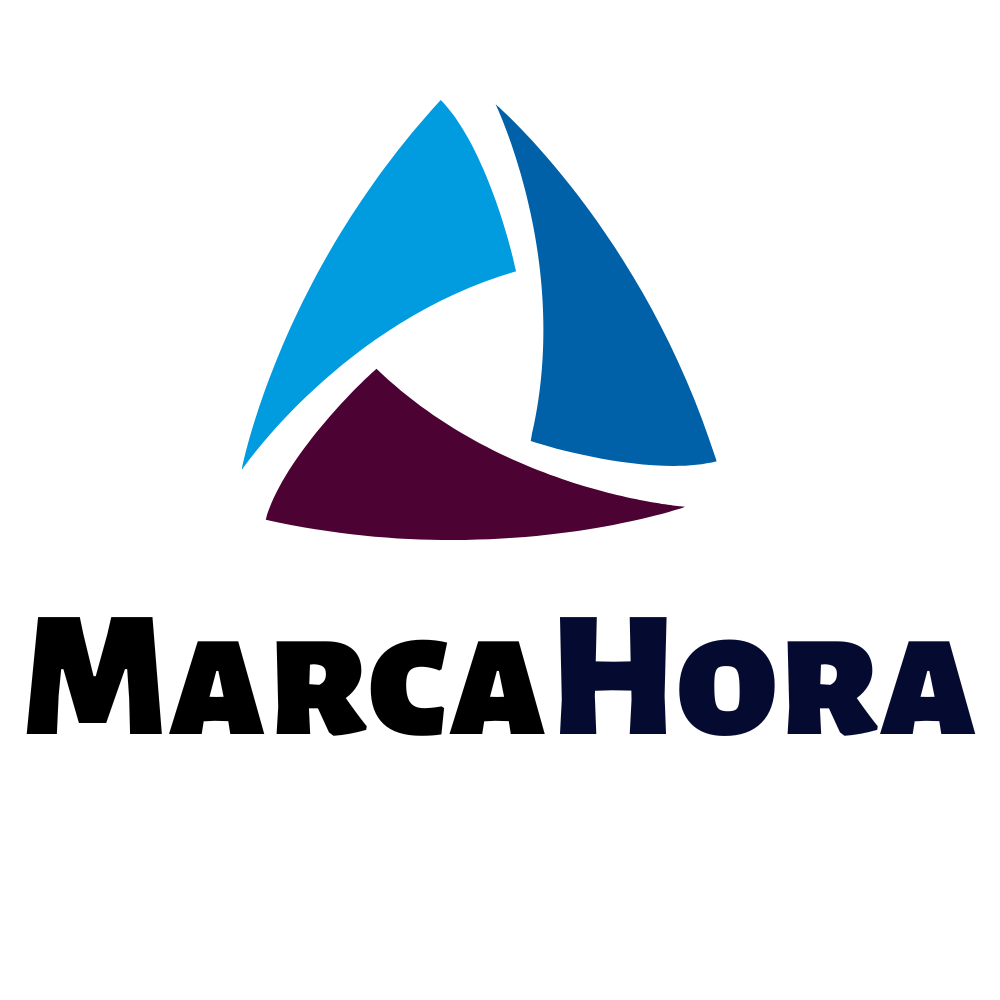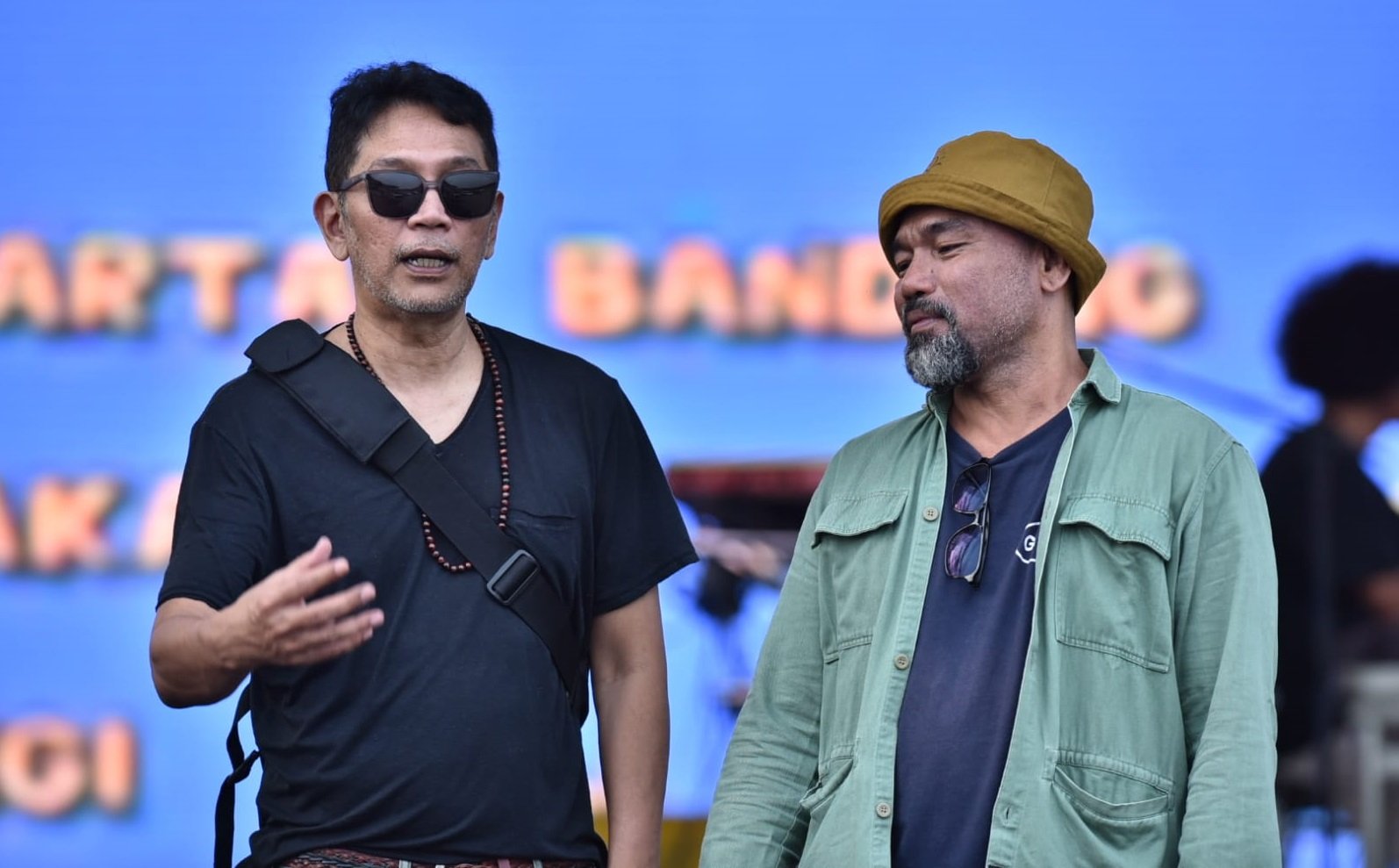Miami-based Rap Snacks connects hip-hop stars to fans one bag at a time – AOL.com

James Lindsay had no experience in the music business when an acquaintance set up a meeting for him with the senior VP of marketing at Universal Music Group in 2006. But he did have a background in marketing snacks, and he noticed that the label spent a considerable amount of money promoting new acts by handing out flyers and posters that didn’t stick — literally or figuratively.
Shortly after promotional posters would be plastered on buildings, they would be torn down and thrown away by property owners or local officials because they were considered litter.
“I told them, ‘I’m going to show you guys a way to have your poster on an item that people can touch, feel and they can eat,’” Lindsay recalled.
Intrigued by the unusual proposition, Lindsay said the record company executives paid him $100,000 to see his idea in action. He put their artists on the front of potato chip bags — an idea so popular that when his contract ended in 2007, he capitalized on his relationships with the artists and put their pictures on the front of his Rap Snacks chips.

The idea for Rap Snacks was an expansion of a concept Lindsay started in 1994. Now based in downtown Miami, the company is celebrating its 30th anniversary. Since its inception, Rap Snacks has made more than $50 million in revenue, according to company representatives.
Today, the brand features flavors like Rick Ross’s Sweet Chili Lemon Pepper, Cardi B’s Habanero Hot Cheese Popcorn, and Lil Baby’s All In, a combination of salt and vinegar, barbecue, onion and garlic. Every artist has a profit-sharing agreement with Rap Snacks to receive income from each bag that is sold with their face on it.
“It’s very surreal, because I envisioned it,” Lindsay said. “I’m a big advocate of envisioning things you want to accomplish.”
As a 13-year-old growing up in North Philadelphia, Lindsay often bought flavorful chips from his local corner store after school before heading out to hang out with his friends. The snacks he ate were as part of his routine as traveling on the subway.
A business owner in his community who sold water ice, Mr. Bill, showed him that he could have a future with his own company someday.
“He was a pillar in the community,” Lindsay said.
With that entrepreneurial mindset, Lindsay majored in business at Cheyney University of Pennsylvania, a historically Black college outside of Philadelphia. After graduating in 1994, he got a job as a consumer products manager at Johnson Products, a haircare brand that was the first Black-owned company to be listed on the American Stock Exchange.
Working at Johnson’s Philadelphia office was a life-changing experience for Lindsay that pushed him to follow his own dreams. Being surrounded by other Black business people helped him see his own potential as an entrepreneur and allowed him to sharpen his marketing acumen.
“I was in meetings and said that if [they] can do it, I can do it,” he said.
Lindsay began thinking about how he could pivot from working in haircare to launching his own product. When he came up with the idea for the company that would become Rap Snacks, he was certain he had a strong idea but knew his work was cut out for him. At the time, he had no experience in the food industry, and his only funding source was $40,000 he had raised from family and friends.
As Rap Snacks was entering the scene, Frito-Lay owned about half the market of the snack chip business, with more than $5 billion in sales in 1994. To penetrate the market, Lindsay had to be creative. He created a fictional character called MC Potato to be on the front of his chip bags and focused on making flavors like Bar-B-Quin’ With My Honey and Back At The Ranch that were desirable among consumers.
Lindsay worked with mom-and-pop retailers in urban neighborhoods and began selling 25-cent bags of chips. The price point was lower than that of the competition and allowed customers to try the product without having to spend a lot.
“I was selling hundreds of thousands of bags per day in these little stores,” Lindsay said. “ … You don’t just start a brand for products and not let people be able to sample them. People want to know what it tastes like.”
The business strategy paid off, and Rap Snacks made $5 million within its first five years, Lindsay said.
By the time Lindsay met with executives at Universal Music Group in 2006, the product had become more refined, and Lindsay knew he was onto something.
Rap Snacks expands
In 2012, while still running the business, Lindsay said he became a music manager for Philadelphia rapper Meek Mill. Although Lindsay had no experience as a talent manager, he said his tenacity for building branding concepts helped Meek Mill land deals with sneaker brand Puma and Monster headphones.
Being from a cold-weather city like Philadelphia made Miami attractive to Lindsay as a headquarters for his company. After he moved Rap Snacks to Miami in 2016, the new home base became an added tool in connecting with potential collaborators.
“The big advantage for us is that everybody wants to come here,” he said. “Even artists.”
Those artists include musician and entrepreneur Percy “Master P” Miller, whom Lindsay has known since 2001. In 2017, the two founders began collaborating on concepts for snacks and food products, and Miller became a limited partner in Rap Snacks.
Lindsay has also been inspired by Miller’s No Limit Records, a successful independent music model designed to empower artists. Like Miller, Lindsay’s experience motivated him to use Rap Snacks as a way to create equity for the artists he works with.
“One of the main reasons was to let these artists know how much equity you have in your brand,” Lindsay said. “Your brand is going to last longer than your music. I want to give them opportunities to make as much money as they can.”
As Lindsay and his colleagues celebrate Rap Snacks’ 30th anniversary this year, he is excited about future prospects. Rapper NBA YoungBoy’s chips will be coming soon, and the company is looking at a global expansion that will place the snacks in Spain, France and throughout Africa.
A Rap Snacks music festival will be held in Africa later this year, and Lindsay said he is developing a brand of healthy snacks called Do The Right Thing after the critically acclaimed Spike Lee film.
While Lindsay’s vision may not have seemed clear to others when he first started, it made sense to him, and he’s followed those instincts to great success.
“You got to follow your dreams,” he said. “Regardless of whether somebody says it doesn’t make sense at the time, you have to, because everybody’s not going to be able to see what you see.”




:quality(85)/cloudfront-us-east-1.images.arcpublishing.com/infobae/Y5SDKBA7H5EFDHMFXMZEBQWEX4.jpg)